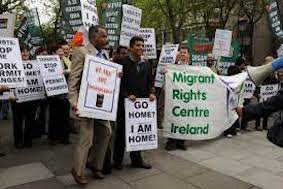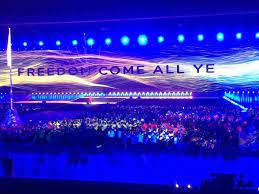In March 2022, Allan Armstrong announced the intention to write three reviews of books written in Ireland addressing the current political situation Socialists face there. The purpose in doing this has been to build the case for an all-islands, republican internationalist coalition to challenge the UK state and its imperial allies. These have now been completed and the links to each of these 3 reviews and the Conclusion can be found below. This is followed by an edited part of the Conclusion.
FOR A REPUBLICAN ALL-ISLANDS COALITION
Part 1 – THE CHANGING NATURE OF BRITISH RULE IN IRELAND: ONE LEFT RESPONSE

A review of Ireland’s Partition: Coda to counterrevolution by John McAnulty
PART 2 – WINNERS, LOSERS AND LEARNERS

A review of The State of Northern Ireland and the Democratic Deficit: Between Sectarianism & Neo-Liberalism, by Paul Stewart, Tommy McKearney, Georoid O’Machail, Patricia Campbell and Brian Garvey
https://allanarmstrong831930095.files.wordpress.com/2023/07/winners-losers-and-learners.pdf
PART 3 – SUMMER IS COMING
A review of Anois ar theact an tSamhraidh – Ireland, Colonialism and Unfinished Revolution by Robbie McVeigh and Bill Rolston
https://allanarmstrong831930095.files.wordpress.com/2023/08/summer-is-coming-.pdf
PART 4 – CONCLUSION – FREEDOM COME ALL YE
https://allanarmstrong831930095.files.wordpress.com/2023/02/conclusion-freedom-come-all-ye-pdf
a) To party or not to party?
Forming an all-islands republican internationalist coalition would represent a considerable political advance. However, in the longer term, there is also a need for political parties, with their ability to address and link up a much wider range of issues. The British ruling class have long recognised this. They use their own political parties (supported by their state and media) to try to impose their bureaucratic ‘internationalism from above’ strategy, backed, when necessary, by the US State Department and the EU bureaucracy.
But there have also been Labour, Left Social Democratic and Marxist parties, or sects claiming to be parties or proto-parties (be they orthodox, i.e. state backed, or dissident, e.g. Trotskyist), with their own relationships to existing states and national movements. However, these have bequeathed such a toxic political legacy, that it is not surprising that many on the Left end up confining their activity to particular campaigns and movements. They often drop one campaign to move to another after a decline in its activity.
Thus, the important political legacy left by the best of these campaigns and movements becomes marginalised. History is rewritten by others and the real challenges these movements and campaigns have offered (e.g. Scotland’s 2012-14 ‘democratic revolution) are first trivialised then ignored by those trying to bury or cash-in on such challenges. They are much assisted in this by those on the Left who have moved on to their latest campaign. This contributes to the loss of political memory.
Thus, Republican Socialists should distinguish themselves from Anarchists and Movementists by arguing for the need for parties. Party activities are not confined to one arena, e.g. workplace, community, particular oppressed group, or field of cultural endeavour. The party is where the experiences from all these other arenas can be discussed, debated, leading to more effective wider political work. But this requires a very different culture from that associated with bureaucratic organisations like the Labour Party or the Marxist sects.
Furthermore, when it is decided to make use of existing state constitutional provisions, e.g. participate in elections, this should always remain subordinate to creating independent class organisations, otherwise Left parties soon turn into outriders buttressing the political and economic status quo, as we have seen with Syriza in Greece and Podemos in Spain.
Many on the Left are much better informed of Russian official and dissident Communist history, and in the UK of English/British history. When forced to examine Irish, Scottish, Welsh or Black resistance they can only do so through superior Russian or British chauvinist lenses. Instead, Republican Socialists need to be politically located within the historical traditions of the exploited and oppressed of their own nation and indeed pre-nations within those specific territories. This also encourages a much greater understanding of the importance of culture as a counter to alienation, and its significance in upholding these struggles’ historical memory, after they have been marginalised or erased in the political arena. Cultural struggles can also contribute to the formation of ‘communities of resistance’.
Yet a party cannot just be declared. It has to have an organised relationship with the politically advanced sections of the exploited and oppressed – our class ‘united in its diversity’. To accomplish all this, pre-party organisation is required. This would uphold all the aforementioned party principles and work in genuine autonomous organisations to develop a wider democratic culture and to win wider support. Pre-party organisations would also repudiate treating autonomous organisations as front organisations or trying to substitute their own activities for those of wider autonomous organisations. They should actively uphold the need for autonomous organisations (e.g. campaigns and movements). But within autonomous organisations, rather than the usual behind-the-scenes ‘politicking’, open political (and other organisational) affiliations should also be encouraged. Wider debates can then be organised, beyond those required for immediate activities. This ensures that all participants are involved in the wider strategic thinking, instead of leaving that to behind-the-scenes, unaccountable leaders.
A key feature of any pre-party (or party) organisation is the need to develop a programme. The need for programmes has come under attack for a number of reasons.[1] Whilst many accept the need for an immediate programme (which some ambiguously call a minimum programme), this is not usually linked to the need to build and defend independent class associations. These include both parties and autonomous organisations, which need to develop independently of the existing constitutional order. Indeed, ‘immediate’ often comes to mean just the next election, with a ‘programme’ acting as a manifesto. Programmes, however, are a central democratic tool to enable both pre-party and party organisations to distil what has been learned internationally and nationally. Debates organised around programmes are both politically educational and allow proposals and demands to be agreed democratically.
And to encourage democratic debate, there is a need to move beyond the old practice of having factions (including the undeclared leadership and the secret factions) found in the bureaucratic Labour/social democratic parties and the Marxist sects. Factions act in a superior manner towards anybody else and resort to personalised abuse and worse when dealing with those they perceive not to be with them.
Instead, platforms are required. All members of pre-party or party organisations should have joined on the basis of agreed principles or programme. Therefore, the purpose of debate between different platforms is to further develop ideas for all members, including other platform and non-platform members. Discussion and debate should be conducted, not to impose one particular line on others (or force them to leave), but to achieve a new synthesis, that is a higher level of understanding, for agreed action. The right to form platforms should be enshrined in the pre-party or party constitution, accompanied by a code of conduct. This would still lead to majority voting when programmatic positions need to be taken and particular actions agreed. But these decisions can be returned to later, in the light of experience, and be revised if necessary.
So, when it comes to any new parties, where are we today politically? Looking around these islands, we are some distance away from being able to form parties with strong links to the advanced sections of the exploited and oppressed and their own autonomous organisations of struggle. But there was a time in the Tsarist Russian empire, before the formation of any party, whether it was the Bolshevik ASUCP in 1925, its RCP predecessor in 1918, or the RSDLP in 1902, when Socialists got together to promote what was in effect a pre-party. They formed the League of Struggle for the Emancipation of the Working Class in 1895.
Perhaps today we could envisage a League of Struggle for Emancipation, Liberation and Self-Determination (there is no intention of insisting on such a name, just the principles this mentions), reflecting our acknowledgment that capitalism is a linked system of exploitation, oppression and alienation. However, back in 1895, one of the key contradictions which was to emerge on the International Left, was already present.[2] Under the guise of promoting working class unity throughout the Tsarist Empire, one-state, ‘internationalism from above’, party organisation came to be insisted on. ‘Internationalism from below’ political organisation was to be vehemently opposed. Luxemburgists and Leninists argued that such organisational principles could only become a conduit for petty nationalism. They were completely blind to the greater possibility that one-state organisations would become the conduit for ‘great nation’ chauvinism, social unionism in the UK (which later extended to the infant USSR) and social imperialism generally.
These two undoubted problems cannot be resolved organisationally. But autonomous organisations for the oppressed, be they nationalities, women or LBGT+, should be supported in pre-parties, parties and campaigning organisations and movements. Here Socialist Republicans will undoubtedly come up against those championing organisational autonomy for Separatist reasons (e.g. Left nationalists, Radical Feminists). The Socialist Republicans answer to this is to be fully involved in such autonomous organisations but also call for unity through solidarity with others challenging their own specific oppressions, the better to overcome the wider capitalist system which sustains them.
b) Looking globally to ‘Freedom Come All Ye’
The experience of Social Democratic parties and the Marxist sects at national or state level has been replicated on the international scene. Sects like to puff themselves up with the appearance of being internationally organised.[3] A glaring weakness of these organisations, after their initial mobilising successes in the Alter-globalisation movement (1999) and anti-Iraq war (2003) movements, has been their marginalisation in Occupy in 2011, the Women’s March against Trump on January 21st, 2017, and Black Lives Matter in 2020. None of these mobilisations have been achieved under the banner of the sect internationals, or within Europe by their diplomatic multi-sect alliance the European Anti-Capitalist Left, now a shadow of its former self. In their absence, Anarchists and Movementists have once again made a virtue out of immediacy and spontaneity.
Instead of sect internationals, multi-sect internationals or no international at all, a new international, based on a non-confessional basis would be more appropriate. This would mean rejecting the inevitably sectarian approach through adherence to particular ‘isms, e.g. – Marxism, Leninism, Trotskyism, Maoism.[4] Instead a new international should seek the unity of those seeking emancipation, liberation and self-determination. Today we need something more like the early First International.
The First International organised solidarity for migrant workers, for national democratic struggles (the USA, Poland and Ireland) and backed the Paris Commune in 1871.[5] In all the Internationals and especially in the constituent parties of the Third International, migrant and colonised workers and intellectuals played a disproportionate but positive role, in opposing Eurocentric (including the US) ‘internationalism’ and trying to uphold a global internationalism. Any proposed international organisation today, whether for these islands, or possibly extending across Europe, should be acutely aware of the dangers of Eurocentrism. However, migrant communities, often with close links to the exploited and oppressed in the neo-colonial states, today form a much larger section of the working class and should be central to any new international organisation.
Similarly, any such international should avoid the ‘Campism’ left by the legacy of the USSR and its Third International, and some Fourth International organisations. These have also exerted their pull in sections of Left social democracy and Left Labour, and even some Anarchists. e.g. Noam Chomsky.[6] Any genuine international organisation today would support the struggles of the oppressed for example in Palestine, Kurdistan, Syria, Yemen, Xinjiang and Ukraine against their imperial aggressors. The First International was non-confessional but had a set of founding principles. Real discussion and debates took place. Its meetings were well prepared and recorded. Therefore, this Conclusion’s last appeal is also to the many Socialists, still eager or anxious to oppose the current imperialist order, who have become troubled at the behaviour of the Marxist sects and their sect-Internationals. So, it is hoped that these Socialists can help make the break with the toxic legacy which still plagues sections of the Left.
Corporate capital and imperialist states threaten us with nuclear annihilation or ‘barbarism if we are lucky., It threatens us with catastrophic environmental degradation and major and more devastating pandemics. To counter this, this Conclusion draws for inspiration upon the Scottish internationalist, Hamish Henderson. He made the global call – ‘Freedom Come All Ye’.
Allan Armstrong, 27.2.23
[1] Trotskyists have elevated Trotsky’s 1938 Transitional Programme either to a ‘sacred’ document or a cover for adopting immediate social democratic politics. This reflects the fact that for there to be any possibility of a transition, there already needs to be a situation of ‘dual power’ with independent parties and autonomous organisations in power. This was not the case anywhere in the world in 1938, hence the spit between the Trotskyist abstract propagandists and the social democratic accommodationists. Anarchists oppose programmes because they believe that the major international and national demands of the exploited and oppressed arise spontaneously. The SWP opposes programmes, because they act as a democratic impediment to the opportunistic U-turns it often makes – e.g. on Scottish independence in 2011.
[2] For an analysis of the International Left and its three main components, the Radical Left followers of Rosa Luxemburg, the Bolshevik then Third International followers of Vladimir Lenin, and the supporters of Internationalism from Below, e.g. Kazimierz Kelles-Kreuz, James Connolly and Lev Yurkevich, see https://allanarmstrong831930095.files.wordpress.com/2023/08/ukraine2.pdf.
[3] The SWP and the SP have their own sect internationals, the International Socialist Tendency (IST) and the Committee for a Workers International (CWI). The United Secretariat of the Fourth International has Socialist Resistance (SR) as its British section and Socialist Democracy its Irish section, although its French affiliate, the LCR – now dissolved – has carried far more weight within the USFI.
The USFI maintains its unity through diplomatic ‘internationalism’, so its constituent units can find themselves on different sides over crucial issues. The IST and CWI maintain their ideological coherence through expulsions or bureaucratic marginalisation and harassment until people leave of their own accord.
And as at the national or state level, there has also been an attempt to bring the sects together internationally. This was done in 2000 in the form of the European Anti-Capitalist Left (EACL). When the EACL declined, losing much of its EU parliamentary representation in 2004, its various constituent members withdrew to their own sect internationals, or were drawn more and more into the orbit of the Left social democratic European Left.
[4] The Second International was initially ideologically based, giving primacy to an orthodox Marxism. This tradition was continued in the Third International,only it was not Marxist primacy, but Marxist-Leninist supremacy that was sought. The CPSU, backed by the USSR state, was able to enforce this. This attempt to establish Marxist-Leninist orthodoxy was taken almost to the point of parody by the Fourth International, which, without state backing, split up into the infamous 57 varieties of Trotskyism.
[5] The eventual collapse into competing sects – e.g. Marxist, Lassallian, Bakuninist – largely came about because of the defeat of the Paris Commune.
[6] This does not mean a repudiation of everything some of these political activists and intellectuals have written or said in the past. Chomsky’s Manufacturing Consent is an important book. When the ruling class and their apologists denounce the brutal activities of competing imperial powers, it is their hypocrisy that needs challenged, not adopting the position my immediate enemy’s enemy is my friend. This cuts you off from the exploited and oppressed in major parts of the world, leaving them far fewer political options and more prone to the appeals of your own ruling class.
____________


